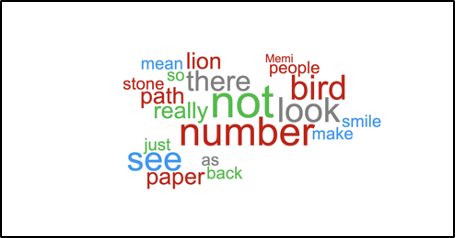Jen Law, a writer, trainer, change manager and lead author from our Cambridge Global English series stage 12 has been exploring the different ways you could use a story to stimulate language learning. Below she shares how we can be getting creative with stories.
A while back someone asked me if I’d be interested in writing fiction for upper secondary and adult English language learners. Would I be interested! Like a runner off the starting blocks, I was off. And as I wrote and stories came to life on the page, light bulbs started popping.
I began thinking about all the different ways you could use a story to stimulate language learning. Maya Angelou was spot on when she said, ‘creative thinking builds on itself and increases the creativity of the thinker’. Before long, I was talking to colleagues, sharing ideas, and delving deeper into the world of creative writing. Here are a couple of the things I’ve been exploring.
Words, words, words
Creative texts can be wonderful vehicles for immersing readers in many aspects of lexis. So, how can we get learners to engage with the words at a deeper level? I decided to reach out to James Thomas, advocate of data driven learning, to try out some ideas. I wrote the first chapter of a story and James used VersaText tools to extract the vocabulary and create some incremental word clouds. We then hosted an online workshop and began by inviting participants to explore the word clouds through a set of critical questions.
Cloud 1: ‘These are the ten most frequent words in our story. Is there anything here you can visualise?”

Cloud 2: ‘Here are the top twenty. A few characters doing a few more things. Who is doing what? Where does your eye lead you around this word cloud? Why are the words different sizes? This means that the author is using the same words again and again. Is this normal?’

Cloud 3: ‘Here are the top thirty words. Which words are we seeing for the first time? Are you getting any sense for what the story might be about? What about the genre? Is it an extract from a newspaper report, an academic paper, a science fiction novel?’

The response from our participants was pleasingly positive, as evidenced by the fast-moving chat box. They noticed, deduced, and predicted as the word clouds grew and came up with some seriously creative ideas about what the story could be about. We followed this up by talking about their experience and how they could use this approach to engage and stimulate their learners. We could see their light bulbs had started popping too.
Readers to writers
During the same webinar, we invited the participants to read the source chapter and see if their idea of the genre they had deduced from the word clouds was a match. Those who had suggested adventure or quest were right on the money. We then invited them to collaborate in small groups and to discuss how the story might unfold.
It seemed the word clouds had stimulated some seriously creative thinking. We were treated to some wonderful suggestions, including the numbers the protagonist had found on a piece of paper being a code to bring a stone lion to life! The discussion that followed was equally rich in ideas too. As, one participant put it, without knowing it, they had gone from being readers to writers. Maybe this would be a good way to empower their reluctant student writers, unlock their creativity and get them writing.
Stories for learning
A good story draws you in. It piques your interest. It makes you want to turn the page. Without you knowing it, it fires up your little grey cells, makes cerebral connections, and catalyses cognitive processes. This goes for us all, our students included. So, why not try writing your own stories for class (you know your students) or tap into some excellent anthologies of short stories like Stories of Ourselves. Have a go and see if you can get some more light bulbs popping!
Find out more about Cambridge Global English 10-12 series.
Listen to Jen Law in our podcast about Teaching Global English. Find out about the cross-curricular demands of studying subjects in English at Cambridge IGCSE™ and Cambridge International AS & A Level, how to develop essential English language skills, how to support your students in the transitions between qualifications and how to develop the necessary academic skills for future study.
Watch our series of videos about Cambridge Global English 10-12 and how to choose your upper-secondary English resources.



